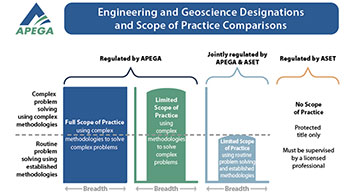 In the Philippines, an Engineering Profession can be obtained after graduating from an accredited University or College that offers a Bachelor of Science Degree in Engineering, depending on specific disciplines. The Bachelor of Science in Engineering Degree can be completed in 5 years after satisfying all the academic requirements. Engineering is also a regulated Profession in the Philippines since an individual needs to pass the National Exam (Board Exam) to practice his or her Profession. A graduate of an Engineering Degree in the Philippines can work and practice his or her profession in their field under limited circumstances that he/she cannot sign a plan or design without proper authority from the Professional Regulation Commission (PRC). Engineering Degrees in the Philippines are recognized in most Middle East countries. In US, Canada, Australia and New Zealand, however, specific academic requirements must be satisfied before a Practice of Engineering is granted.
In the Philippines, an Engineering Profession can be obtained after graduating from an accredited University or College that offers a Bachelor of Science Degree in Engineering, depending on specific disciplines. The Bachelor of Science in Engineering Degree can be completed in 5 years after satisfying all the academic requirements. Engineering is also a regulated Profession in the Philippines since an individual needs to pass the National Exam (Board Exam) to practice his or her Profession. A graduate of an Engineering Degree in the Philippines can work and practice his or her profession in their field under limited circumstances that he/she cannot sign a plan or design without proper authority from the Professional Regulation Commission (PRC). Engineering Degrees in the Philippines are recognized in most Middle East countries. In US, Canada, Australia and New Zealand, however, specific academic requirements must be satisfied before a Practice of Engineering is granted.
For most International Educated Engineers (IEE) who are immigrants to Canada – the path to their professional practice must be clear under which regulating body they are covered. In Alberta, APEGA published a Fact Sheet for clarity for those “International Engineers” on what and how their profession is designated and what the scope of practice is for each designation.
Below is a diagram that explains in simple terms how they will be practicing their profession in Canada, where they call themselves “Engineer” in their home country.
Reference: https://www.apega.ca/about-apega/publications/fact-sheets


